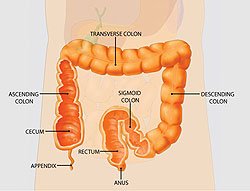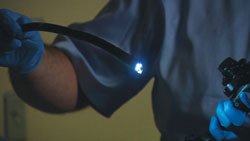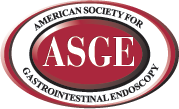This information was developed by the Publications Committee of the American Society for Gastrointestinal Endoscopy (ASGE). For more information about ASGE, visit www.asge.org.
This information is intended only to provide general guidance. It does not provide definitive medical advice. It is important that you consult your doctor about your specific condition.
Colon Cancer Screening Saves Lives
Approximately 150,000 new cases of colorectal cancer are diagnosed every year in the United States and nearly 50,000 people die from the disease. It has been estimated that increased awareness and screening would save at least 30,000 lives each year. Colorectal cancer is highly preventable and can be detected by testing even before there are symptoms. The American Society for Gastrointestinal Endoscopy encourages everyone over 50, or those under 50 with a family history or other risk factors, to be screened for colorectal cancer.
A colonoscopy screening exam is almost always done on an outpatient basis. The procedure typically takes less than 45 minutes.
Six Questions That Could Save Your Life (or the Life of Someone You Love)
Test your knowledge about colorectal cancer (CRC) screening. If you think the answer is true or mostly true, answer true. If you think the answer is false or mostly false, answer false.
Beginning at age 50, men and women should have:
An annual occult blood test on spontaneously passed stool (at a minimum);
A flexible sigmoidoscopy every 5 years; or,
A complete colonoscopy every 10 years.
Important: You may need to begin periodic screening colonoscopy earlier than age 50 years if you have a personal or family history of colorectal cancer, polyps or long-standing ulcerative colitis.

In a colonoscopy, the physician passes the endoscope through your rectum and into the colon, allowing the physician to examine the tissue of the colon wall for abnormalities such as polyps.
The endoscope is a thin, flexible tube with a camera and a light on the end of it. During the procedure, images of the colon wall are simultaneously viewed on a monitor.
For Your Information
The American Society for Gastrointestinal Endoscopy encourages you to talk with your healthcare provider about colon cancer screening and encourages everyone over the age of 50 to undergo the appropriate screening. If your primary healthcare provider has recommended a colonoscopy, you can find a physician with specialized training in these GI endoscopic procedures by using the free Find a Doctor tool on ASGE's Web site at www.screen4coloncancer.org. For more information about colon cancer screening, visit www.screen4coloncancer.org.Important Reminder: This information is intended only to provide general guidance. It does not provide definitive medical advice. It is very important that you consult your doctor about your specific condition.
Since its founding in 1941, the American Society for Gastrointestinal Endoscopy (ASGE) has been dedicated to advancing patient care and digestive health by promoting excellence in gastrointestinal endoscopy. ASGE, with more than 11,000 members worldwide, promotes the highest standards for endoscopic training and practice, fosters endoscopic research, and is the foremost resource for endoscopic education.
This patient education brochure was developed by the Publications Committee of the American Society for Gastrointestinal Endoscopy. This information is the opinion of and provided by the American Society for Gastrointestinal Endoscopy.
American Society for Gastrointestinal Endoscopy www.asge.org and www.screen4coloncancer.org
Copyright ©2010. American Society for Gastrointestinal Endoscopy. All rights reserved. This information may not be reproduced without express written permission by ASGE. For permission requests, please contact the ASGE Communications Department at 630-673-0600.
Understanding Colon Cancer Screening
This information was developed by the Publications Committee of the American Society for Gastrointestinal Endoscopy (ASGE). For more information about ASGE, visit www.asge.org. This information is intended only to provide general guidance. It does not provide definitive medical advice.
